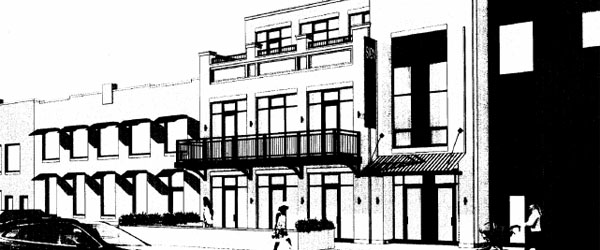Lakehouse owner seeks tax abatement
'The tax number is a very heavy burden for us'
Lakehouse owner Jon Leidersdorff is seeking a tax abatement to help with the expansion of his Lake Avenue music academy and recording studio.
Earlier this month, the city’s Planning Board approved an amendment to allow expansion of Leidersdorff’s operation into the neighboring three-story building that has remained vacant for years. The plan now awaits the City Council’s final approval. The building is being subdivided with Leidersdorff purchasing the portion of the structure next to the existing Lakehouse.
Leidersdorff came before the Council during Monday night’s workshop meeting to ask for participation in the five-year payment in lieu of taxes [PILOT] program which abates taxes on new development.
“The tax number is a very heavy burden for us,” Leidersdorff said. “It wouldn’t allow the project to move forward.”
If approved, taxes for the new space in the adjacent building would be paid on a gradient schedule. No taxes would be paid the first year, 20 percent of the tax bill would be paid the second year, 40 percent the third year, 60 percent the fourth year and 80 percent the fifth year. The full bill would take effect in the sixth year. Erick Aguilar, the city’s tax assessor, provided those figures to council on Monday night.
According to Aguilar, the project without the PILOT program would generated estimated tax revenue of $150,000 over the first five years. The city’s portion of that is 57 percent or approximately $87,000. The county government and city’s board of education receive the remainder.
If accepted into the PILOT program, the estimated tax revenue would be $63,000 for the first five years, he said. However, under a PILOT agreement the city gets 95 percent of that amount, which is an estimated $60,000.
Aquilar cited The Showroom cinema on Cookman Avenue and boardwalk projects as participants in the PILOT program. Businesses increasing their square footage by at least 30 percent may participate in the PILOT program, which still requires approval of the council, Aguilar said.
Leidersdorff said the purchase and redevelopment costs are “very, very expensive.”
He said once the building is occupied by the small business owners, they would divide the tax bill.
“We are a community based business,” Leiderdorff said. “We do a lot of nonprofit work. We do feel this would benefit the community.”
Among other community programs, the Lakehouse instructors offer recording engineering, record label and hip hop band classes to the Boys & Girls Club of Monmouth County members as well as music classes at Asbury Park’s Hope Academy Charter School, where no music program existed prior to their involvement.
“It’s a struggle for the small businesses and we are all small businesses,” Leidersdorff said. “The tenants have to be able to make it and we see a lot of [businesses] dropping off. Because we are all in the building together, sharing a mission and working together, that is where the strength is but it is really tight and everything is more expensive now.”




